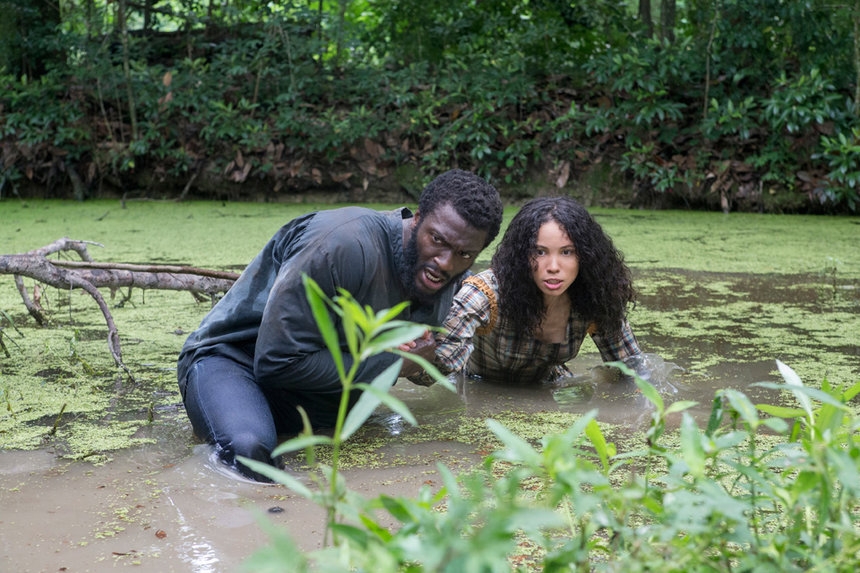 The first season of Underground opened in 1857 on the Macon Plantation in Georgia. The plantation’s Master, Tom Macon is in the midst of running for Senate while trying to manage his pregnant wife, Suzanna, their large cotton plantation and many slaves. In the twenty years that Tom has been the Master of the plantation, he hasn't had a single runway.
The first season of Underground opened in 1857 on the Macon Plantation in Georgia. The plantation’s Master, Tom Macon is in the midst of running for Senate while trying to manage his pregnant wife, Suzanna, their large cotton plantation and many slaves. In the twenty years that Tom has been the Master of the plantation, he hasn't had a single runway.
We are quickly introduced to Noah, one of Macon’s slaves whose been plotting for a way out. Right away we learn just how brilliant and clever Noah is. He is able to manipulate Tom into thinking he’d gotten lost when he was really paving the route for his escape. Over the course of the first couple of episodes of Underground, Noah recruits several people to run with him. In the midst of his plotting and planning, he encounters Rosalee.
A young enslaved woman who works inside the Macon home with her Mama, Ernestine, Rosalee seems meek and quiet. She’s also a favorite of Master Tom. Rosalee’s brother James is around six and stays inside the Big House as well, a companion of the Macon’s young son, T.R. Her older brother Sam is a skilled blacksmith on the plantation. Immediately we pick up on the obvious tension between Ernestine and Mistress Suzanna, and we soon discover that Rosalee and James are also Tom’s children.
Another man of note is Cato, the Macon Plantation’s Black driver. He’s menacing AF; basically your typical Uncle Tom. Spying on Noah, he soon realizes what he’s plotting, and he blackmails Noah into letting him in on the escape. Along with Cato, Noah recruits the preacher Moses, his wife, Pearly Mae (who can read), their young daughter Boo, Rosalee’s brother Sam, a young slave named Henry and a large, strapping slave named Zeke.
In the midst of the daily occurrences on the Macon Plantation, we also meet Tom Macon’s Northern brother, John Hawkes. Though he’s pro-abolition, he’s wary about offering his home, which lies along the Ohio River, as a station on the Underground Railroad. We also meet his wife, Elizabeth whose desperation to have children seem to be driving her mad. When the pair arrives down South to the Macon plantation in celebration of Tom’s daughter’s birthday, the horrors that they witness compel them to take real action.
After meeting Noah, Rosalee who had previously been fairly ignorant to the horrors of her own life has an awakening of sorts. An overseer whips her after she defends her little brother, and she narrowly escapes the clutches of Tom’s disgusting friends who are visiting for his Senatorial race announcement. Though she’s terrified of the consequences, she decides to run with Noah.
via GIPHY
As we all know, even the grandest plans don’t always play out as you'd expect; especially during this era. Despite Noah’s careful planning, which includes a stolen gun, a stolen seal, crafting tools to get across the bridge and forging free papers, Rosalee is accosted one evening by Bill, a drunken overseer. He tries to rape her, and she slashes his throat with a bottle in defense. Horrified, she stumbles out of the man’s cabin to Noah. They decide then and there that their only recourse is to run immediately. In doing so, they leave Boo, Pearly Mae, Sam, Cato, Henry, Zeke, and Moses behind.
The next day the plantation is all-abuzz, Bill is hanging on for dear life (unfortunately) and Noah and Rosalee are missing. We think this might be the end of the grand escape plan, but in the final hour, Cato sets the cotton fields ablaze giving the men, now known as the Macon 7 time to run. Unfortunately, Sam and Pearly Mae don’t make it out with the others who eventually catch up with Rosalee and Noah. Noah, Rosalee, Cato, Boo, Moses, Zeke and Henry form the legendary Macon 7.
Continue reading at ESSENCE.com.


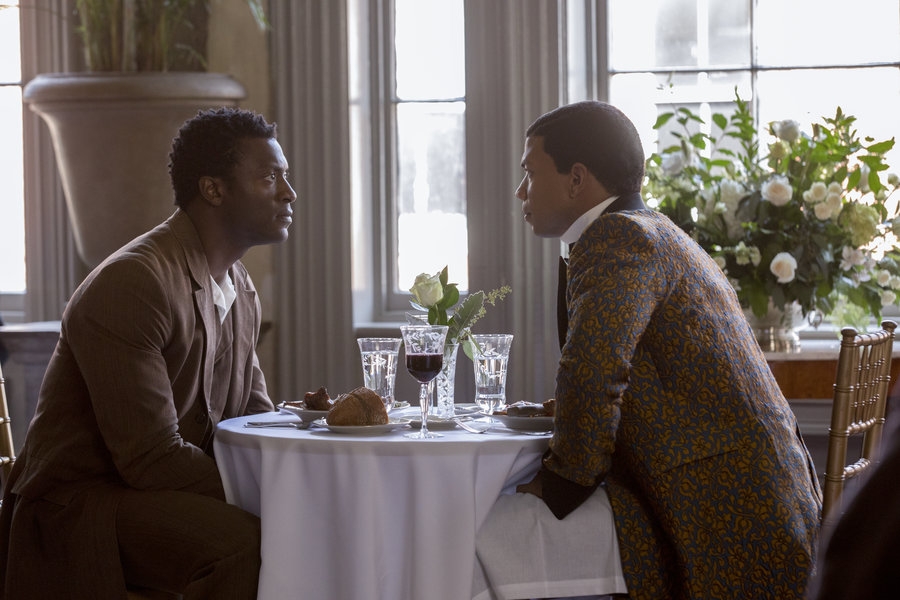

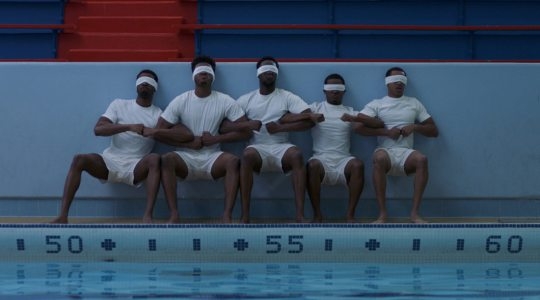 If you exist outside of the Greek world, and certainly if you attended a predominantly white university as a student of color, Greek life swirls around you.
If you exist outside of the Greek world, and certainly if you attended a predominantly white university as a student of color, Greek life swirls around you.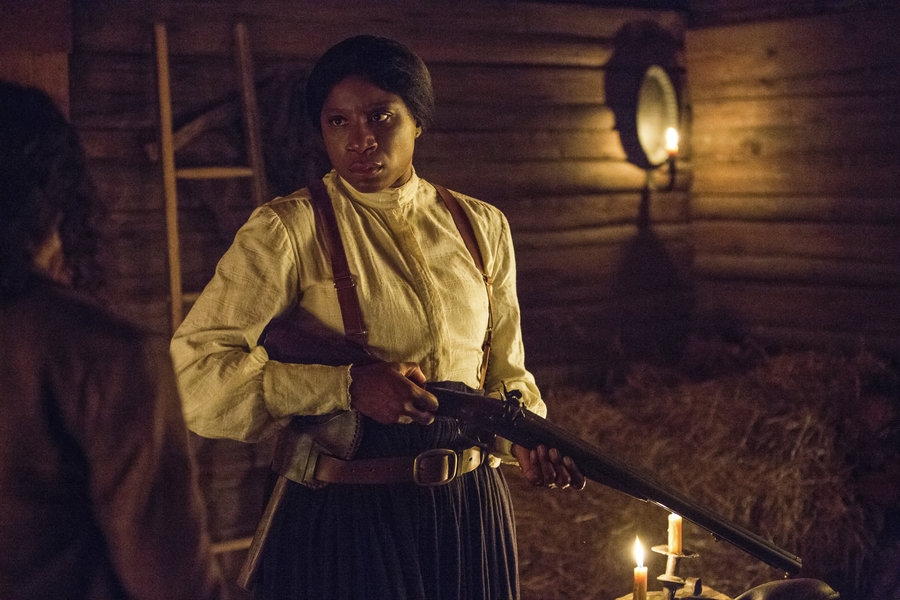 "Contraband," the first episode of the second season of Underground, opens with Beyoncé’s “Freedom” blaring as a roll of thunder awakens an enslaved man on the Fellow Plantation in 1858. The man arises before sundown, and we watch him toil all day, sculpting a statue before handing his money over to his Master at sundown. Soon, a montage of his workdays reveals what he's really up to, stealing news clippings from around the plantation to teach himself how to read. “Soldier” is the first word he learns.
"Contraband," the first episode of the second season of Underground, opens with Beyoncé’s “Freedom” blaring as a roll of thunder awakens an enslaved man on the Fellow Plantation in 1858. The man arises before sundown, and we watch him toil all day, sculpting a statue before handing his money over to his Master at sundown. Soon, a montage of his workdays reveals what he's really up to, stealing news clippings from around the plantation to teach himself how to read. “Soldier” is the first word he learns.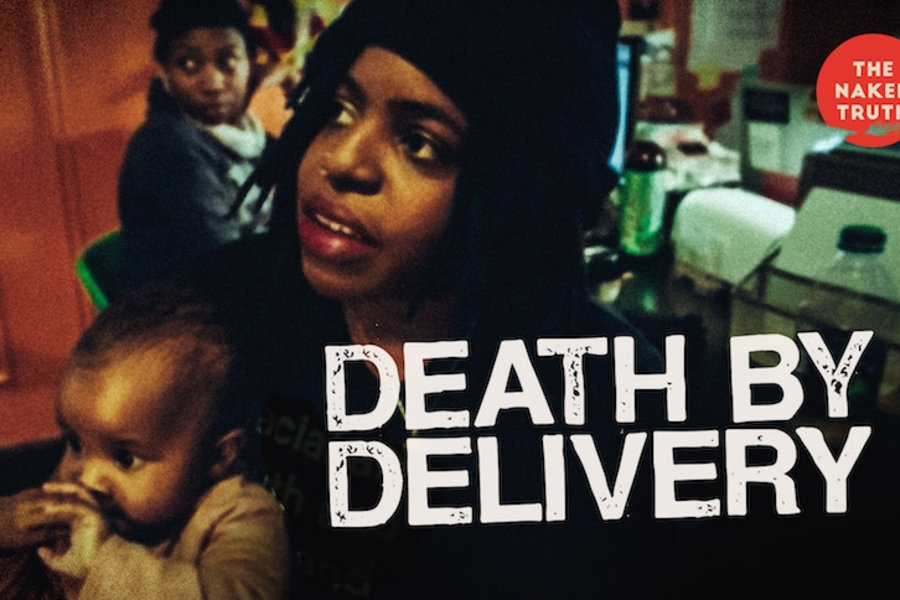 On February 1st, artist and entertainer Beyoncé Knowles announced her pregnancy with a grand Instagram post. Though her announcement and her subsequent performance at the Grammys was met with glee, excitement, and congratulations across the globe; white female writers at alarming rates attacked the Lemonade singer for expressing her joy over the impending birth of her twins.
On February 1st, artist and entertainer Beyoncé Knowles announced her pregnancy with a grand Instagram post. Though her announcement and her subsequent performance at the Grammys was met with glee, excitement, and congratulations across the globe; white female writers at alarming rates attacked the Lemonade singer for expressing her joy over the impending birth of her twins. The first season of Underground opened in 1857 on the Macon Plantation in Georgia. The plantation’s Master, Tom Macon is in the midst of running for Senate while trying to manage his pregnant wife, Suzanna, their large cotton plantation and many slaves. In the twenty years that Tom has been the Master of the plantation, he hasn't had a single runway.
The first season of Underground opened in 1857 on the Macon Plantation in Georgia. The plantation’s Master, Tom Macon is in the midst of running for Senate while trying to manage his pregnant wife, Suzanna, their large cotton plantation and many slaves. In the twenty years that Tom has been the Master of the plantation, he hasn't had a single runway.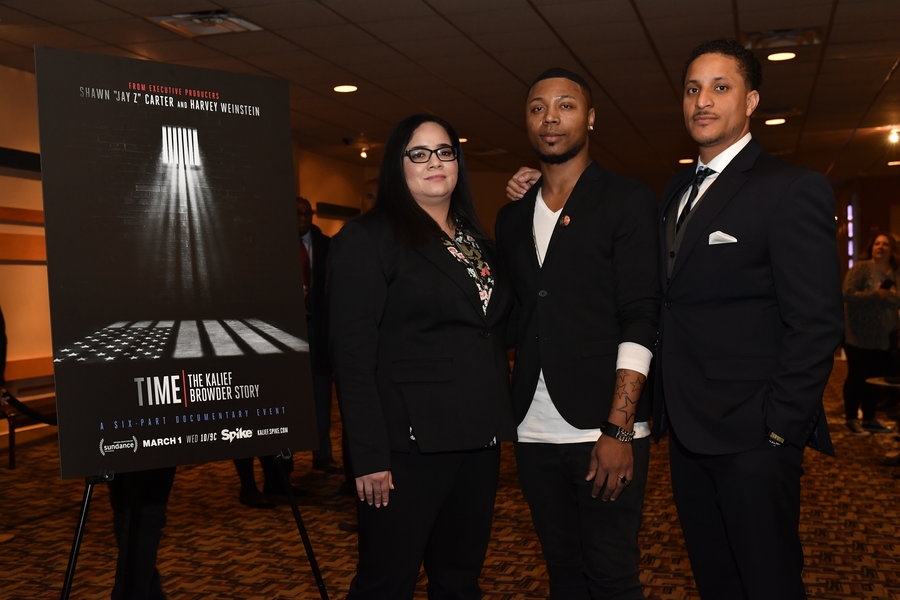 On May 15, 2010, sixteen-year-old Kalief Browder, a Bronx, New York resident was arrested while walking home from a party for allegedly stealing a backpack. Though he was never convicted of the crime, Browder would spend over the next one thousand days of his life locked away on Rikers Island, being beaten, starved and tortured. Browder spent eight hundred of those days in solitary confinement before he was finally released, with all charges dismissed, over three years later.
On May 15, 2010, sixteen-year-old Kalief Browder, a Bronx, New York resident was arrested while walking home from a party for allegedly stealing a backpack. Though he was never convicted of the crime, Browder would spend over the next one thousand days of his life locked away on Rikers Island, being beaten, starved and tortured. Browder spent eight hundred of those days in solitary confinement before he was finally released, with all charges dismissed, over three years later.